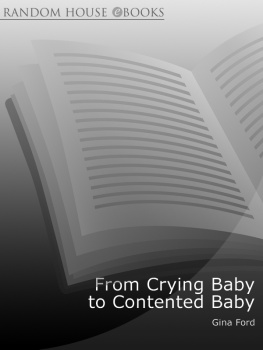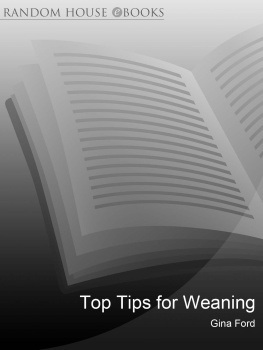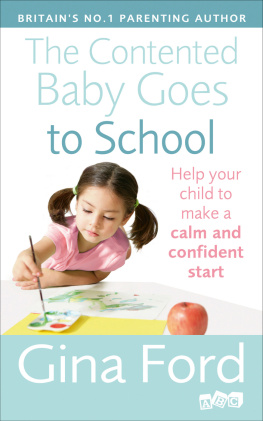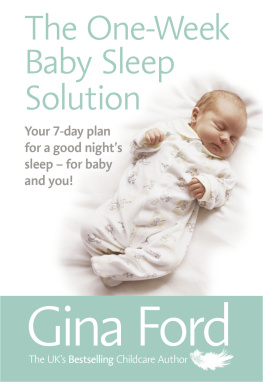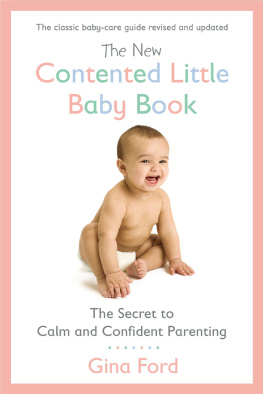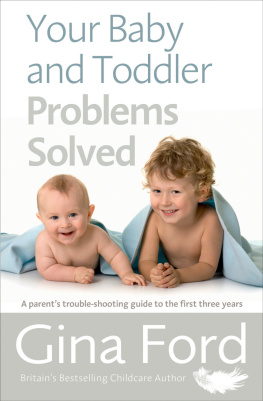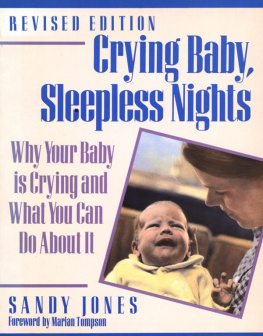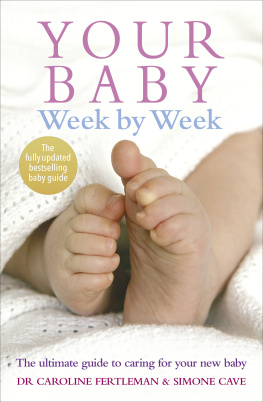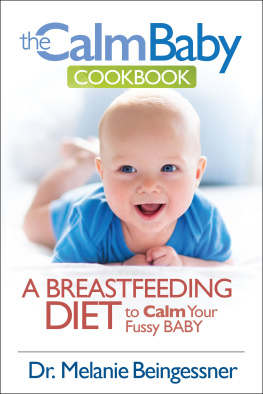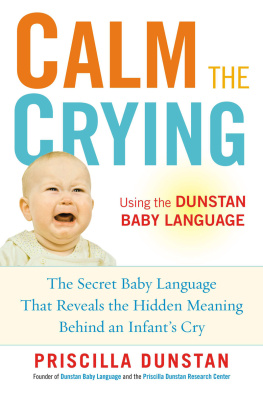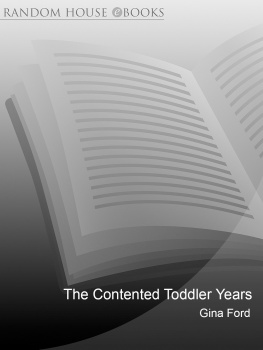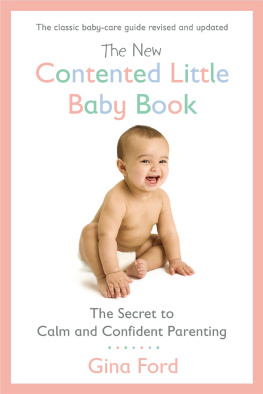Contents
About the Book
All parents relish that very first cry from their newborn baby. Yet as the crying continues it can become deeply stressful. And no sooner have you worked out what your young baby is trying to tell you often hunger, fatigue or discomfort than they grow older and the reasons more complex teething pain, anxiety or simply frustration.
In From Crying Baby to Contented Baby, Britain s bestselling childcare author, Gina Ford, outlines the common triggers for each specific age group, whether it s a five-week-old or a 10-month-old, to help you determine the most likely cause for your baby s distress so that you can respond to their needs and quickly comfort and settle them.
Full of practical tips such as encouraging parents to stop, look, listen , and lots of reassuring advice, your baby and you! will soon be calm and content once more.
About the Author
Gina Ford is Britains bestselling childcare author. Her first publication, The Contented Little Baby Book, has sold over a million copies and continues to be a bestseller. Ginas wise counsel and extensive experience has enabled her to guide countless families through the early years of parenthood. She runs a hugely popular website, www.contentedbaby.com, and offers a consultation service for parents wanting specialist help with their babies and toddlers. She has published over twenty parenting books.
Introduction
Since writing my first book The Contented Little Baby Book I have received letters and calls from thousands of parents who have told me how much my methods have helped them when they have been at breaking point. Of course, my approach might not suit everyone, but I know it can help relieve the stress and confusion of early parenthood, and has done so for many mothers and fathers.
One of the most stressful things any parent has to endure is to listen to their baby crying, particularly if the crying goes on for any length of time and all attempts to calm the baby fail. In this book I give concise advice on learning the signs of hunger, tiredness, boredom or indeed many of the other reasons that cause young babies to get upset, and I offer effective methods for calming and settling. The fact that you are able to understand his needs and meet them quickly and confidently will leave both you and your baby calm and reassured, and avoid unnecessary crying. From extensive experience, I know that all babies are different and what works with one baby may not work for another. For this reason, my advice in this book can be adapted to suit the individual needs of each baby.
I am confident that this book will teach you how to swiftly recognise why your baby is upset and meet his needs accordingly so you have a calm and contented baby. Being a parent should be a happy and deeply satisfying experience. My advice has worked for many thousands of parents and their contented babies, and they can work for you too.
1
Hunger
HUNGER IS ONE of the most common reasons for babies to be unhappy or unsettled, and it is also one of the easiest problems to solve. I always advise parents to assume that their baby is hungry if he is crying, and only start working their way through any other potential causes once they have eliminated hunger as a possibility. Hunger is not only an issue for a new baby when you are establishing feeding, but can cause problems throughout the first year as your baby grows rapidly and his nutritional needs change.
Hunger in the first two months
Feed times:7am, 10am/11am, 2pm/2.30pm, 5pm, 6pm/6.15pm, 10pm/11pm (plus any middle-of-the-night feeds necessary)
Nap times between 7am and 7pm:8.30/9am10am, 11.30am/12pm2.30pm, 3.30/4.30pm5pm
Maximum daily sleep:35 hours
(These times are only meant as a guide. Adjust the times to suit your babys individual needs.)
Hunger is a common cause of crying in very young babies, both breast- and bottle-fed, until regular feeding patterns are established. Newborn babies feed frequently and will need a minimum of eight feeds a day. In the very early days some babies may need even more. Frequent feeding is important in helping to stimulate your milk supply. Hunger can become an issue when babies go through a growth spurt around the third week when their appetitie increases and they need more milk.
Breast-fed babies
In my experience of working personally with hundreds of mothers, getting off to the best start with breast-feeding in the very early days can help avoid hours of endless crying in the early months. In all of my books I say that I do not agree with the term demand feeding, but this does not mean that I advise a baby should not be fed when he is hungry. The reason I am opposed to this term is that, all too often, newborn babies are so sleepy that they do not demand to be fed. These long intervals between feeds in that important first week can often mean a mothers breasts are not being stimulated enough, and by the second or third week can result in a baby becoming very irritable and crying excessively on and off for hours through genuine hunger because the mother is not producing enough milk.
For this reason, I advise that from the very beginning newborn babies are woken and fed every three hours. This time is calculated from the beginning of one feed to the beginning of the next feed. I do also stress that should a baby be crying before the end of three hours, then of course the baby must be fed.
If your baby suddenly becomes more unsettled around the third week, which is usually around the time of the first growth spurt, you may find your baby demanding to be fed on and off around the clock. It is very possible that you are not producing enough milk, particularly if he has not yet regained his birth weight. When this happens, I would suggest that for a couple of days you express 1530ml (1oz) from each breast before you feed your baby. The reason I say to express before feeds is that your baby will always be more efficient about extracting milk (especially the hind milk) from the breast than an expressing pump will be. For the first couple of days you may find that your baby will need to feed even more often, but this will quickly help you increase your milk supply. The milk that you express during the day can be used to top-up after the 6.15pm and 10pm feeds, which will help your baby go slightly longer in the night.
When this longer spell happens you should feel your breasts become slightly more engorged which is a sign that you are producing more milk. You can then increase the amount you express at the 7am and 10am feeds to 30ml (1oz) from each breast. After a week or so, you should notice your baby is happy to go slightly longer between feeds, and he may even need less milk at the top-up feeds. However, to ensure that you do not end up with a very unsettled baby during the next growth spurt at around six weeks, I would recommend that you continue to express at least 6090ml (23oz) at the 7am feed, and at least 3060ml (12oz) at the 10am feed.
During the first couple of months expressing in the morning will mean that when your baby goes through a growth spurt, you can simply decrease the amount you express which results in your baby receiving the extra milk he needs, avoiding any excessive crying spells due to hunger in the early days. For further more in-depth information on low milk supply please see

